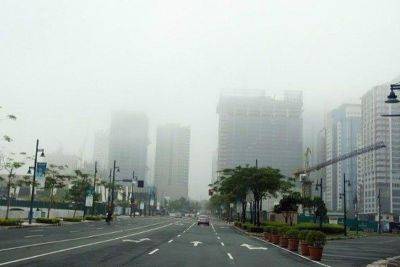Food prices are rising as countries limit exports. Blame climate change, El Nino and Russia's war
How do you cook a meal when a staple ingredient is unaffordable?
This question is playing out in households around the world as they face shortages of essential foods like rice, cooking oil and onions. That is because countries have imposed restrictions on the food they export to protect their own supplies from the combined effect of the war in Ukraine, El Nino’s threat to food production and increasing damage from climate change.
For Caroline Kyalo, a 28-year-old who works in a salon in Kenya's capital of Nairobi, it was a question of trying to figure out how to cook for her two children without onions. Restrictions on the export of the vegetable by neighboring Tanzania has led prices to triple.
Kyalo initially tried to use spring onions instead, but those also got too expensive. As did the prices of other necessities, like cooking oil and corn flour.
“I just decided to be cooking once a day,” she said.
Despite the East African country's fertile lands and large workforce, the high cost of growing and transporting produce and the worst drought in decades led to a drop in local production. Plus, people preferred red onions from Tanzania because they were cheaper and lasted longer. By 2014, Kenya was getting half of its onions from its neighbor, according to a U.N. Food Agriculture Organization report.
At Nairobi's major food market, Wakulima, the prices for onions from Tanzania were the highest in seven years, seller Timothy Kinyua said.
Some traders have adjusted by getting produce from Ethiopia, and others have switched to selling other vegetables, but Kinyua is sticking to onions.
“It's something we can't cook without,” he said.
Tanzania's onion limits this year are part of the “contagion” of food restrictions from countries spooked by supply shortages and increased demand for their produce, said Joseph Glauber, senior research fellow at the International Food Policy Research Institute.
Globally, 41 food export restrictions from 19 countries are in effect, ranging from outright bans to taxes, according to the institute.
India banned shipments of some rice earlier this year, resulting in a shortfall of roughly a fifth of global exports. Neighboring







